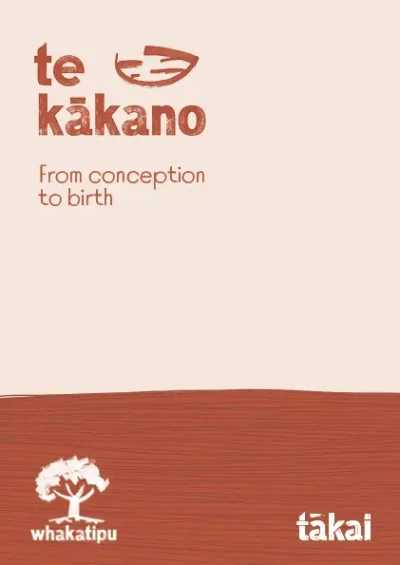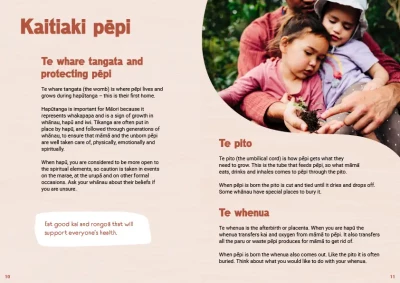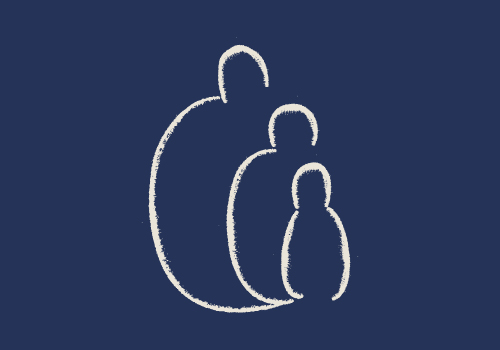
Te whare tangata and protecting pēpi
Te whare tangata, the womb, is where pēpi lives and grows during hāputanga (pregnancy) – this is their first home. A whānau may decide to follow special tikanga to keep their hapū māmā and unborn pēpi safe.
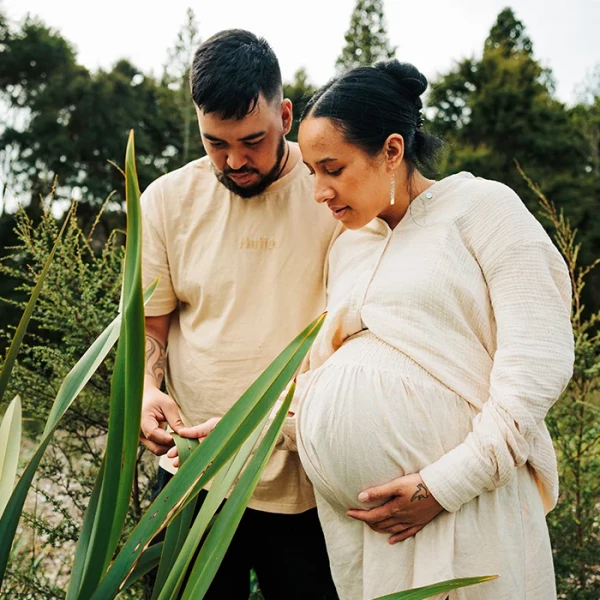
Me aro koe ki te hā o Hineahuone
The whare tangata provides all the essential elements required to sustain the beginnings of life until birth, when pēpi emerges into the ‘world of light’.
Tikanga Māori me hapūtanga
Hāputanga is important for Māori because it represents whakapapa and is a sign of growth in whānau, hapū and iwi .
Tikanga are often put in place by hapū, and followed through generations of whānau, to ensure that māmā and the unborn pēpi are well taken care of, physically, emotionally and spiritually. Examples are giving māmā special kai, relieving her from hard or stressful work, or avoiding places and activities that are traditionally seen as risky to a hapū woman.
When hāpu, you are considered to be more open to the spiritual elements, so caution is taken in events on the marae, at the urupā and on other formal occasions.
Although these concepts derive from traditional practices and past times, they can be applied in our world today. Whānau can benefit from considering how these traditional concepts relate to them.
Whanāu tikanga
Some whānau may want to investigate their own whānau tikanga around keeping māmā and pēpi safe during pregnancy.
Often parents know a lot of tikanga without being aware that it’s specifically about protecting a hapū māmā and pēpi. They might just think that it's ‘the way it is’.
Conversation ideas
Making changes
Women often make lifestyle changes to ensure their pēpi has the best start in life. Alcohol, drugs, violence, depression, and inadequate nutrition pose real risks to pēpi and māmā. What can be done to minimise these risks and keep them safe?
- What changes have you made for the safety of your growing pēpi?
- What has helped you to make these changes?
- What has been the most difficult to change?
- Who has supported the pregnant mum?
- In what way have they supported her?
Helpful resources for whānau
-
Pregnancy and children
Te Whatu Ora
Information and advice for new parents from Te Whatu Ora.
-
Te Ha Ora Facebook page
Te Ha Ora is a kaupapa Māori antenatal and parenting hapū wānanga for māmā and whānau in Ōpōtiki.
-
Your pregnancy<
Your pregnancyIn this video from the Ministry of Health, three different whānau share their pregnancy stories, including how they found out they were having a baby, chose a midwife, and prepared for baby's arrival.
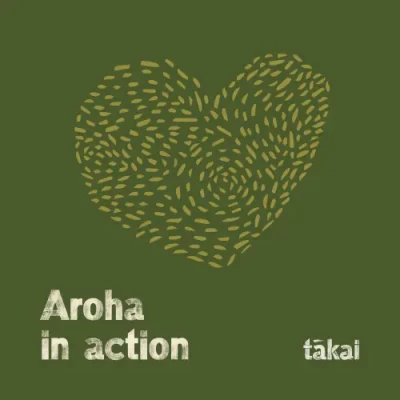 pdf 5 MB
pdf 5 MB
